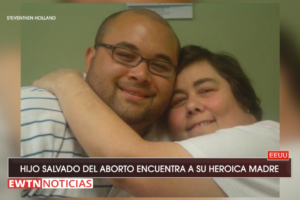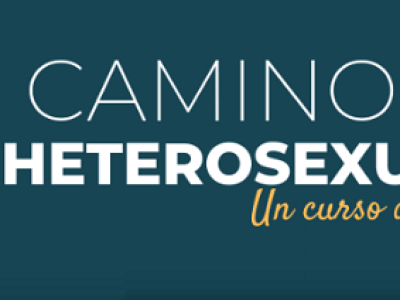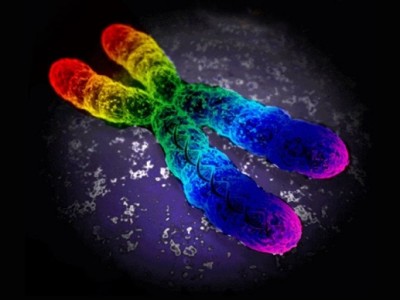What We Know And What We Don’t Know About Homosexual Inclination and Mental Illness
Lord Jesus Christ, Son of God, have mercy on me, a sinner.
From: http://lisagraas.com/blog/
Last night, I had a discussion with a reader who suffers from Depression. Our discussion was in regard to homosexual inclination, mental illness, the Cross of Christ and what our duties are to people with homosexual inclination and mental illness so that all may be led to Christ. She had asked me to clarify/explain what my position is in these areas, as have others over the course of the last few weeks (months?). I see now that this is not something that is easily explained to most people, so I thought I should write something that covers “what we know and what we don’t know about homosexual inclination and mental illness” in the context of our Catholic Faith. Considering that I personally suffer from a mental disorder, I have learned a lot of things over the years on this topic simply by walking on my own journey with Jesus Christ and trying to do so in accordance with Church teaching through study and submitting to spiritual direction.
For many years, homosexual inclination was treated as a mental disorder. Political pressures seem to have changed that, but since “inclination” itself is a matter dealing with the mind, and since we all agree, as Catholics, that homosexual acts are sin, then the topic will always have a certain kind of relationship to the study of mental disorder, at least in the context of the Catholic Faith which I am here concerned with.
The big question most have, it seems, is in regard to whether or not homosexual inclination is “sin”, and whether or not people with mental disorders are responsible (whether they are in “sin”) for the things they say and do that do not seem to be Christian. The prevailing thinking seems to be that one is not in sin at all — in any way, shape or form — if one has homosexual inclination but does not commit homosexual acts, and also that one is in sin — at least, of a sort — if one acts in a bad manner while suffering from a mental disorder. It is important to find out what the truth is on these matters because many people are suffering and all have a duty to care for the sick.
Regarding whether or not homosexual inclination is sin, most cite the letter to the bishops from then-Cardinal Ratzinger, now Pope Benedict XVI, entitled Pastoral Care of Homosexual Persons, particularly this phrase:
[…][T]he particular inclination of the homosexual person is not a sin […]
Here is fuller context:
In the discussion which followed the publication of the Declaration [on Certain Questions Concerning Sexual Ethics of December 29, 1975], however, an overly benign interpretation was given to the homosexual condition itself, some going so far as to call it neutral, or even good. Although the particular inclination of the homosexual person is not a sin, it is a more or less strong tendency ordered toward an intrinsic moral evil; and thus the inclination itself must be seen as an objective disorder.
Therefore special concern and pastoral attention should be directed toward those who have this condition, lest they be led to believe that the living out of this orientation in homosexual activity is a morally acceptable option. It is not.
In other words homosexual inclination, though not “formally” a sin, should never be characterized as morally neutral. The reason it is not morally neutral is that it is objectively disordered itself. If we characterize it as morally neutral, we are then leading others into believing that it might be okay to carry out the act. We are leading others into formal sin. Further, because it is not morally neutral, then characterizing it as morally neutral is something that “ought not” be done, and because it “ought not” be done, it is not an area of prudential judgment.
Prudential Judgment definition from Fr. John Hardon [Excerpt]:
Correct knowledge about things to be done or, more broadly, the knowledge of things that ought to be done and of things that ought to be avoided.
Conclusion: If we are to take the letter “Pastoral Care of Homosexual Persons” as our guide on these matters, then because we know that the characterization of homosexual inclination as morally neutral ought not be done, then it is not an area of prudential judgment when someone characterizes homosexual inclination as morally neutral. As it stands, the letter “Pastoral Care of Homosexual Persons” is something that we are bound to obey as Catholics, ergo, it is not at all a matter of prudential judgment to characterize homosexual inclination as morally neutral because to do so leads people into formal sin.
In the phrase “the particular inclination of the homosexual person is not a sin”, we are in need of something more clear from the Vatican because so few seem to be willing/able to put two and two together. Homosexual inclination is not “formal sin“, however it is “internal sin” and, as such, leads people into formal sin.
At Mass, we say the Confiteor:
I confess to almighty God, and to you, my brothers and sisters, that I have sinned through my own fault, in my thoughts and in my words, in what I have done and what I have failed to do; and I ask blessed Mary, ever virgin,all the angels and saints, and you, my brothers and sisters, to pray for me to the Lord our God.
We all know, then, surely, that we do sin in our thoughts. Our thoughts themselves can be sinful. So what did then-Cardinal Ratzinger mean when he wrote that “the particular inclination of the homosexual person is not a sin?” In light of what we know about the nature of sin, it would appear that he was referring not to all forms of sin but rather to formal sin as distinct from internal sin. After all, it is not usual in these letters to delve into the depths, particularly when those depths have been delved into elsewhere.
In regard to individual persons and situations, we cannot be absolutely certain about whether or not one’s homosexual inclination falls into the realm of mental disorder in the sense that it is of delusion, in which case, there would be no sin at all. It could be possible that homosexual inclination is the result of delusion, in which case it would be characterized as a mental illness, completely distinct from the issue of free will.
What if a mentally ill person commits a homosexual act? If it is due to the delusion which is caused by mental illness, then there is no responsibility at all for the act. Does this mean he/she gets a free pass? No, because mental illness on this level involves often horrific sufferings due to a condition that God placed in someone when He created that person. In a sense, it can be likened to purgatory on earth in a much more literal sense than is used in vulgar references about “purgatory on earth” made in reference to sufferings in general. Such is not the case with disorders that are developed over time, but only those which people are created with. So-called “personality disorders” would not fall under this classification, generally speaking, but conditions like Bipolar Disorder, Schizophrenia and (sometimes) Depression, would, provided that there is delusion involved which comes about through no fault of the person stricken with it.
It appears that then-Cardinal Ratzinger was saying to us that homosexual inclination is not at all due to delusion. This means that the will and the character of the person are involved. It is, then, “internal sin”. Internal sin has its own distinctly different areas, too: Efficacious desire and inefficacious desire. (See “Nature of Sin” at Catholic Encyclopedia) [ Emphasis mine]:
An efficacious desire, i.e. one that includes the deliberate intention to realize or gratify the desire, has the same malice, mortal or venial, as the action which it has in view. An inefficacious desire is one that carries a condition, in such a way that the will is prepared to perform the action in case the condition were verified. When the condition is such as to eliminate all sinfulness from the action, the desire involves no sin: e.g. I would gladly eat meat on Friday, if I had a dispensation; and in general this is the case whenever the action is forbidden by positive law only. When the action is contrary to natural law and yet is permissible in given circumstances or in a particular state of life, the desire, if it include those circumstances or that state as conditions, is not in itself sinful: e.g. I would kill so-and-so if I had to do it in self-defence. Usually, however, such desires are dangerous and therefore to be repressed. If, on the other hand, the condition does not remove the sinfulness of the action, the desire is also sinful. This is clearly the case where the action is intrinsically and absolutely evil, e.g. blasphemy: one cannot without committing sin, have the desire — I would blaspheme God if it were not wrong; the condition is an impossible one and therefore does not affect the desire itself. The pleasure taken in a sinful thought (delectatio, gaudium) is, generally speaking, a sin of the same kind and gravity as the action which is thought of.
Because there are no circumstances in which a homosexual act is not sinful, then if one desires to commit a homosexual act, the thought itself is as grave as commission of the act. Having said that, it is not “formal sin“. It is “internal sin“.
What about people who do not themselves have this inclination but who study it? Here’s what the Catholic Encyclopedia says about that:
The pleasure, e.g. which one may experience in studying the nature of murder or any other crime, in getting clear ideas on the subject, tracing its causes, determining the guilt etc., is not a sin; on the contrary, it is often both necessary and useful. The case is different of course where the pleasure means gratification in the sinful object or action itself. And it is evidently a sin when one boasts of his evil deeds, the more so because of the scandal that is given.
In other words, it is not sinful to study or publicly discuss homosexual inclination. Certainly, however, it is sinful to disobey the Church by actively leading others into formal sin. The Holy Father has given us an example in his Notification Regarding Sister Jeannine Gramick, SSND, and Father Robert Nugent, SDS, on BOTH the issue of homosexual acts AND the issue of homosexual inclination:
Given the failure of the repeated attempts of the Church’s legitimate authorities to resolve the problems presented by the writings and pastoral activities of the two authors, the Congregation for the Doctrine of the Faith is obliged to declare for the good of the Catholic faithful that the positions advanced by Sister Jeannine Gramick and Father Robert Nugent regarding the intrinsic evil of homosexual acts and the objective disorder of the homosexual inclination are doctrinally unacceptable because they do not faithfully convey the clear and constant teaching of the Catholic Church in this area. Father Nugent and Sister Gramick have often stated that they seek, in keeping with the Church’s teaching, to treat homosexual persons “with respect, compassion and sensitivity”. However, the promotion of errors and ambiguities is not consistent with a Christian attitude of true respect and compassion: persons who are struggling with homosexuality no less than any others have the right to receive the authentic teaching of the Church from those who minister to them. The ambiguities and errors of the approach of Father Nugent and Sister Gramick have caused confusion among the Catholic people and have harmed the community of the Church. For these reasons, Sister Jeannine Gramick, SSND, and Father Robert Nugent, SDS, are permanently prohibited from any pastoral work involving homosexual persons and are ineligible, for an undetermined period, for any office in their respective religious institutes.
This is very serious business.
But what if homosexual inclination is due to delusion? Then-Cardinal Ratzinger’s characterization of homosexual inclination leaves serious doubt as to whether it would ever be characterized that way by the Church. As it stands, this is not the way we are to characterize it. It is possible, however, that with some people there is a pre-existing mental illness which causes delusions of various kinds, including delusions about homosexual inclination. In this case, there would be no responsibility, however all have the duty to seek health and to seek Christ. The way to do that is to submit willingly to competent medical treatment and to full obedience to the Church.
If we long for Christ, we utterly detest all things that may separate us from Him. Further, He will not keep us in bondage to things that separate us from Him. This is why we have the Church’s teaching on mental illness and on the “care of homosexual persons“. The mentally ill are in bondage of sickness, but not in bondage to sin. This is very hard teaching for Catholics.
This is not comprehensible to a secularized mentality
It is not the Faith that is in error on this matter, but the secularized mentality which rejects the authority of the Church. It is this same secularized mentality, I would argue, that leads one to claim that homosexual inclination is morally neutral and to claim that one is not leading people into formal sin by normalizing homosexual inclination. It is no wonder, then, that we will run across people, even ignorant people in the Catholic Church itself, who are unaware of such matters, who will reject and run over the mentally ill while embracing as saints those who have same-sex attraction and, as such, are dealing with a state of internal sin.
Jesus wants our hearts. For more on that, I refer you to my patron, St. Gemma Galgani.
I hope that this is helpful in explaining where I stand on this topic.
May the Passion of Our Lord Jesus Christ Be Ever in Our Hearts!
























